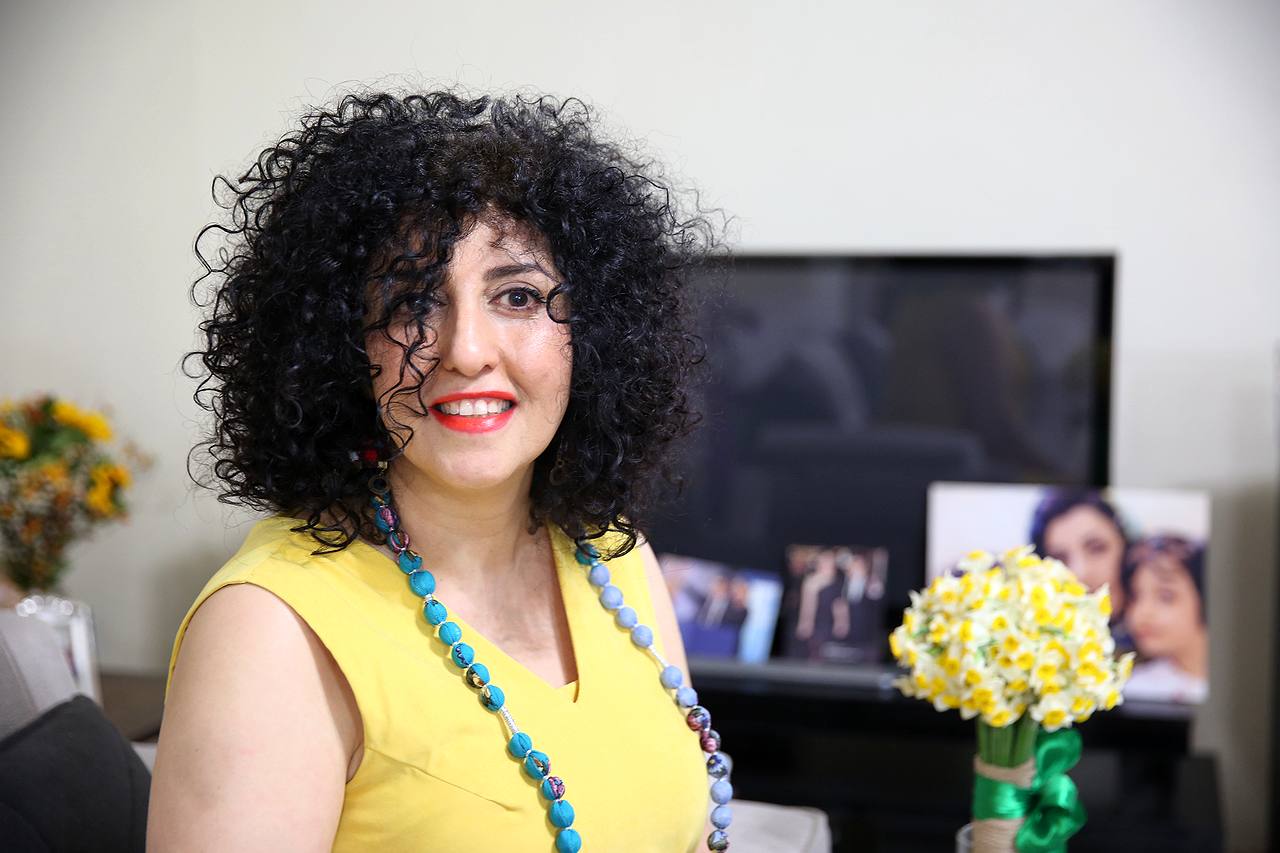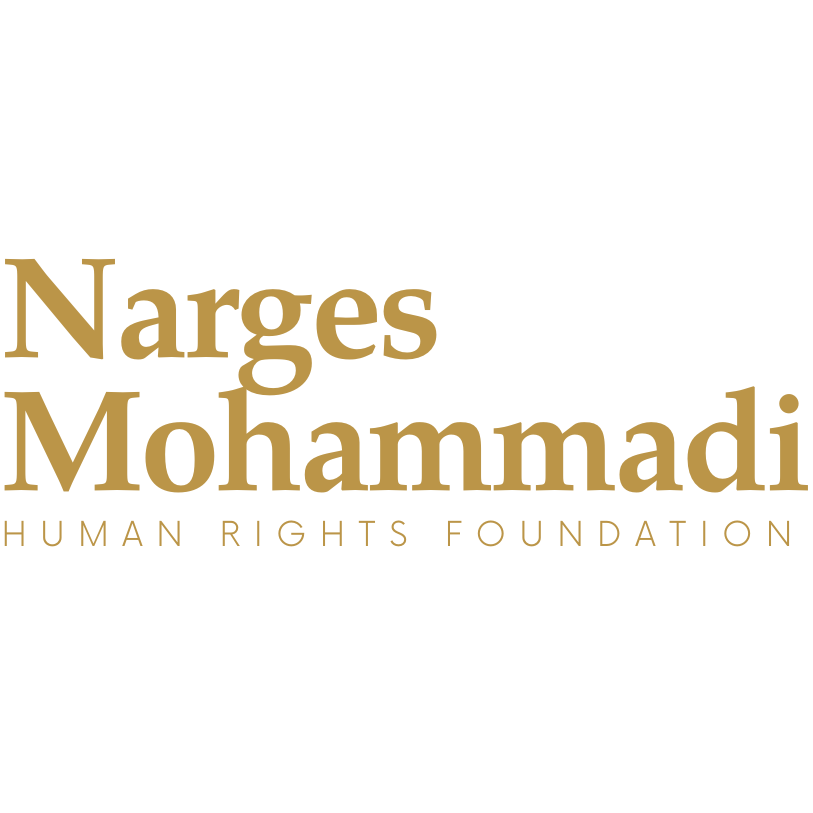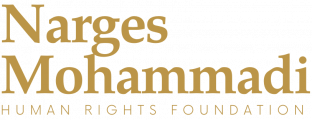
This Prize Belongs to the People: Narges Mohammadi’s Message of Resistance and Hope
Renowned human rights activist and Nobel Peace Prize laureate, Narges Mohammadi, reflects on her journey of unwavering resistance and the global significance of her recognition in an exclusive interview with Le Figaro. Speaking from her apartment in Tehran, Mohammadi highlights the enduring fight for democracy, human rights, and gender equality in Iran, emphasizing the courage of those who have sacrificed their lives for freedom.
On December 4, 2024, Narges Mohammadi was temporarily released from prison on a 21-day suspension of her sentence (not a medical leave). The suspension officially ended on December 25, Christmas Day, when she was expected to return to prison. However, she refused.
On December 28, her lawyer, Mostafa Nili, submitted a request to the Legal Medicine Organization for an extension of her sentence suspension, supported by medical reports indicating she needed at least three months of leave for recovery.
On December 31, the Legal Medicine Organization approved the request and sent the decision directly to the prosecutor’s office.
The final decision now lies with them, while her lawyers continue to advocate for her release.
In the meantime, Narges remains outside prison illegally, engaging in civil disobedience as a form of protest and resistance. True to her principles, she continues to reject the legitimacy of Iran’s judiciary system.
Here is her answers to Le Figaro, France :
Interview with Le Figaro, France
Published on January 13, 2025
I learned in prison that I had been nominated for the Nobel Peace Prize for the third consecutive year. Those around me believed that I would win this prestigious global award. When I heard the news of my victory, my thoughts immediately went to Mahsa Jina Amini, the streets filled with protesters, the young people killed in the streets, and those executed in prison. I told myself this prize belongs to the people, to all the protesters, and to everyone who has risen up. The people of Iran deserve this global recognition and honor. The awarding of this prize to a female imprisoned human rights activist with a long history of civil struggles was a clear message to the world: in Iran, we face imprisonment and torture simply for advocating women’s rights, human rights, and the basic rights of the people.
After the “Woman, Life, Freedom” movement, this award showed that the world sees the struggles of Iranian women and hears their voices. It was also an important message to the regime.
My activism began during my student years, and my first arrest occurred during the student movement. Since then, I have been arrested multiple times, subjected to solitary confinement, psychological torture, beatings, harassment, trials, and imprisonment. The Islamic Republic is a flagrant violator of human and women’s rights. By its very nature, it lacks the capacity for freedom, democracy, and equality, and over the past 46 years, it has repeatedly demonstrated that it is incapable of reform. The regime only knows how to suppress criticism, protest, and dissent.
For decades, we have faced the reality of “political and ideological prisoners.” We strive for freedom of expression and thought, which the regime relentlessly suppresses. In such an environment, it is inevitable that someone like me, working toward human rights, women’s rights, an end to white torture and solitary confinement, and the abolition of the death penalty—through institutional and collective activism—would face constant repression by the regime.
Prison, though it deprived me of the freedom to work in public spaces and organizations we had painstakingly built, did not make me surrender. I resolved to intensify my activism even while incarcerated. This included interviewing fellow prisoners, documenting torture, sexual harassment, white torture in solitary confinement, and executions, issuing statements often smuggled out under great risk, and publishing the book White Torture.
Protest activities, including sit-ins, gatherings, book discussions, and meetings, were another part of my activism that led to repeated punishment and trials. I have been tried nine times, five of which were due to activities conducted inside the prison. The regime could not even tolerate my cheerful and resilient spirit or that of some of my fellow prisoners. In 2020, I was prosecuted specifically for hosting a festive gathering in prison, resulting in a sentence of imprisonment and flogging.
Despite spending years in solitary confinement and public prisons in Evin, Zanjan, and Qarchak, I have strived to continue my activism and keep the spirit of resistance alive in every possible way, depending on the time and place. I believe the regime, just as it failed to suppress public activism in the streets and public domains, also failed to suppress activism in prison.
To date, I have been held in solitary confinement four times. In my book White Torture, I described how isolation deprives a person of their senses, leaving them exposed to intense psychological pressure and crushing interrogations. During arrests, I was often severely beaten, dragged by my hair, and thrown into vehicles. Once, I was threatened with a gun inside a car. In Evin Prison’s yard, I was subjected to intense physical assault. Some of my fellow prisoners have shared horrific accounts of the abuse and torture they endured over the years.
The Islamic Republic uses every means to pressure prisoners, including exploiting their illnesses. Many prisoners have died in detention due to medical neglect, a pattern that continues. I have repeatedly stated that when prisoners face serious illnesses, the regime exploits the situation, denying timely access to treatment and managing their care in a way that often leads to death. Sometimes, we prisoners survive purely by chance.
In recent months, one of the protests in our ward has been over the lack of medical attention for elderly prisoners and those at serious risk of losing their health or lives.
The Islamic Republic is a theocratic dictatorship. Its 46-year record clearly demonstrates its opposition to democracy, freedom of expression and belief, public participation, civil society, human rights, women’s rights, and environmental protection. One of my most profound concerns is the regime’s rapid and devastating destruction of the environment. In the absence of powerful civil institutions, the government operates unchecked, pushing the environment toward annihilation.
In a world where environmental issues are a critical concern, the people of Iran are witnessing the degradation of their land. I believe in transitioning from the Islamic Republic as a theocratic dictatorship. For Iran to embark on the path to democracy, we need a strong civil society.
Independent and diverse civil institutions have emerged in Iran over decades, but the regime ruthlessly suppresses them. My efforts have been aimed at empowering people through independent civil organizations.
In the Middle East, we face gender apartheid. The conditions of women in Afghanistan and Iran provide a stark and clear image of this. Criminalizing gender apartheid not only enables women’s liberation from oppression, discrimination, and subjugation but also cripples one of the powerful tools of authoritarian religious regimes.
Human rights are essential for empowering democracy. We need strong civil organizations for human rights within the country and effective global support. The United Nations and international human rights bodies have a crucial role to play.
Iran is inherently a country of movements. Over the decades, powerful social movements in various fields have spurred intellectual, political, social, and cultural progress. These movements are vital for transitioning from the Islamic Republic and achieving democracy.
The Islamic Republic has suffered irreparable damage from women’s civil and street resistance, supported by the people. Compulsory hijab is a defining characteristic of the theocratic regime and a pervasive tool of control and suppression.
In my view, the regime’s confrontation with women over compulsory hijab is not merely about clothing or religious obligations but about maintaining dominance and perpetuating its authoritarian rule.
The fall of Bashar al-Assad marked the downfall of another dictatorship in the Middle East. The region is no stranger to the rise and fall of dictators, but for Iranians, this fall carried a particular significance, as the Syrian dictator was supported by the Islamic Republic. For the people of Iran, Assad’s fall, in light of recent regional events concerning the regime’s proxy forces, was a telling sign.
Now in my tenth year of imprisonment, I recently left prison due to a severe operation on a bone tumor in my right leg. The walls of the prison cannot limit my activism. I continue to fight for the rights of the Iranian people.
Iranians bear heavy costs in their struggle for democracy, freedom, and against oppression, discrimination, poverty, and systemic corruption. My duty is to stand with the people and work toward their development, prosperity, and better lives.
Iranian children are deprived of education due to poverty. Poverty and unemployment are increasing, and the people’s living conditions are more concerning than ever. Every day, we witness protests and sit-ins by various groups across the streets.
I will continue this struggle alongside the people. The road ahead is difficult, but it is full of hope and life. I will persist in resistance and struggle.


